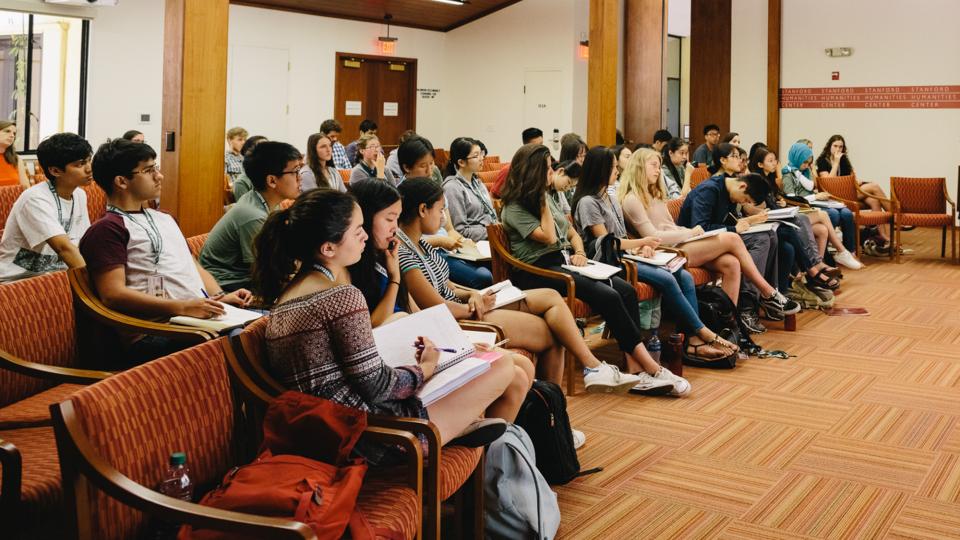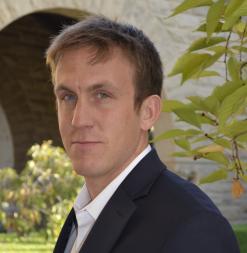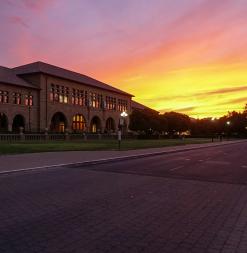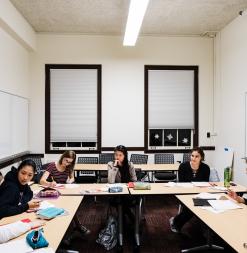Program Information
The Stanford Humanities Circle is suspended for the 2020-2021 academic year. We encourage you to explore our other academic enrichment programs.
2020 Winter Quarter Theme: Philosophy

Stanford Humanities Circle (Grades 9–12) will focus on Philosophy in Winter 2020. The circle sessions will meet during the quarter for an hour and a half each week.
This course will spend time introducing students to basic concepts in two major domains of philosophy: ethics and philosophy of mind. Please navigate to the "2019-2020 Academic Year" section below to read the full course description.
2019-2020 Academic Year
Winter 2020: Philosophy
Show
Hide
Winter 2020: Philosophy
Session Details
There will be ten sessions, meeting each week during the quarter.
Course Description
This course introduces students to basic concepts in two major domains of philosophy: ethics and philosophy of mind. In the first 5 sessions, we will explore three basic models for thinking about questions of ethics, each associated with a particular school of philosophy. We will also consider contemporary and applied ethics, analyzing how these models continue to shape the decision-making of millions of people around the world.
The last 5 sessions probe some of the hardest questions in philosophy of mind:
- What is a good definition of consciousness?
- What is the relationship between mind and body?
Through targeted reading and discussion, we will grapple with some of these basic questions that have obsessed philosophers for centuries.
2018–19 Academic Year
Fall 2018: Poetry, Fiction and Non-Fiction
Show
Hide
Fall 2018: Poetry, Fiction and Non-Fiction
Session Details
There will be ten sessions, meeting on Thursday evenings.
Course Description
In this course, students will become familiar with the various modes and techniques used in writing poetry, fiction, and non-fiction. Through a broad range of reading samples from both creative and expository points of view, and their ensuing discussions, my hope is for students to gain a better understanding of their own potential as writers as well as an overall appreciation for the creative process. The course aims to focus on the development as a writer and a reader, with the hope that they become more confident and effective in communicating their own thoughts on the page.
It is essential for a writer to read voraciously, so we will dedicate a portion of course time to reading excellent examples from many styles, forms, and traditions. Though much of our writing is driven by the imagination, all good writers must have a thorough knowledge of craft. We will look at different modes of creating poems, writing stories, and telling our own. We will learn how to sharpen our words with metaphor, sound, meter, rhythm and imagery.
Instructor
Courtney Kampa
Winter 2019: Applied Ethics and Habits of Mind
Show
Hide
Winter 2019: Applied Ethics and Habits of Mind
Session Details
There will be ten sessions, meeting on Wednesday evenings.
Description
This course introduces students to basic concepts in two major domains of philosophy: ethics and philosophy of mind. In the first 5 sessions, we will explore three basic models for thinking about questions of ethics, each associated with a particular school of philosophy. We will also consider contemporary and applied ethics, analyzing how these models continue to shape the decision-making of millions of people around the world. The last 5 sessions probe some of the hardest questions in philosophy of mind: what is a good definition of consciousness? What is the relationship between mind and body? Through targeted reading and discussion, we will grapple with some of these basic questions that have obsessed philosophers for centuries.
Instructors
Nick Romeo
Winter 2019: Moral Truth and Moral Practice
Show
Hide
Winter 2019: Moral Truth and Moral Practice
Session Details
There will be ten sessions, meeting on Thursday evenings.
Description
Can be moral claims be true or false? If moral claims can be true or false, are any of them true? That is, are there moral facts? If there are moral facts, in virtue of what are they true? If there are moral truths, what are they? That is, what are the general principles moral behavior? Is moral behavior right or wrong because of the consequences it brings out? Or are some actions right or wrong irrespective of their consequences? Or is morality about being virtuous, i.e., having moral character? How do these questions and answers bear on some particular moral questions? For example: what is the moral status of non-human animals? What, if anything, justifies the institution of punishment? What are the ethics of gene manipulation?
Instructors
Greig Mulberry and Taylor Madigan
Humanities Circle Instructors

Nick Romeo
Instructor, Applied Ethics and Habits of Mind
Nick Romeo has written both reported features and cultural criticism for many national publications: The New Yorker, The Washington Post, National Geographic, The New Republic, The Atlantic, Slate, Rolling Stone, Newsweek, NPR, The MIT Tech Review, and many others. His work has explored everything from looted antiquities and drug trafficking to underwater archaeology and the meaning and purpose of a good education.

